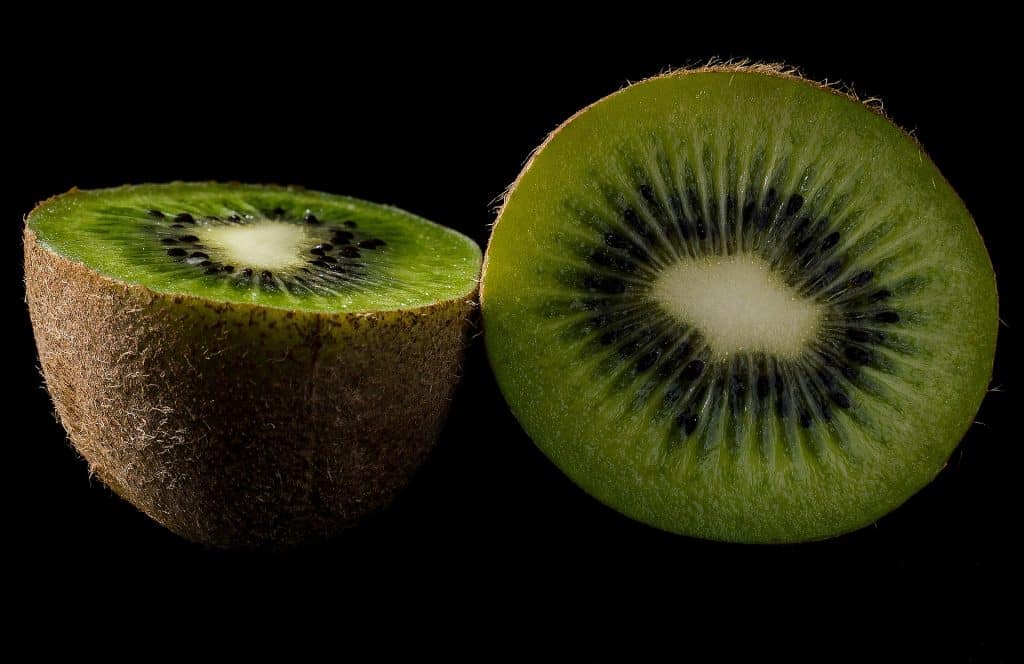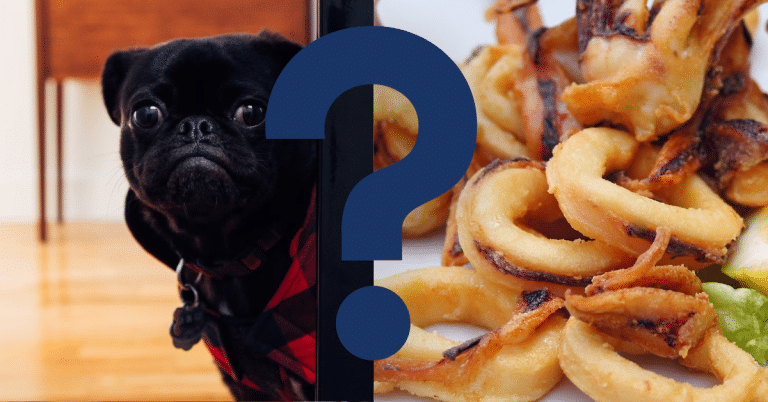Can Dogs Eat Kiwi? A Vet’s Opinion

Kiwifruit, or Chinese gooseberry, originally grew wild in China. Because they are high in nutrients and low in calories, kiwis are a nutrient-dense meal. But can you feed kiwi to your dog?
Dogs can eat kiwi fruit, but it is not advised because it is not harmful. It may upset their stomachs if dogs consume too much kiwi fruit with high natural sugars and fiber levels. In addition, the kiwi fruit’s tiny seeds can become ingested by canines and become an intestinal blockage risk. If you believe your canine has consumed kiwi fruit, watch for any symptoms of digestive upset or obstructions, and speak with your veterinarian if you have any worries.
Benefits Of Kiwi For Dogs
The delectable kiwi fruit is renowned for its numerous health advantages. Kiwis can be a wholesome addition to a dog’s diet if provided in moderation. The following are some advantages of kiwi for dogs:
Rich In Vitamins And Minerals
Kiwi is a food source of potassium, fiber, vitamins C and E, and other vital nutrients that can support the general health of your canine. These vitamins and minerals can strengthen your dog’s immune system, maintain the health of its skin and hair, and encourage healthy digestion.
Low In Calories
Kiwi is a fruit with few calories, making it an excellent snack for canines trying to lose weight. Kiwi’s high fiber content can also make your canine feel satisfied and full, which can help them avoid overeating and weight gain.
Antioxidants Found In kiwi
Vitamin C and other antioxidants found in kiwi can help combat free radicals and lessen oxidative stress in your dog’s body. It can lessen the chance of chronic diseases, improve organ function, and avoid cell damage.
Oral Health
Better dental health is supported by kiwi, which has natural enzymes that can help remove plaque and tartar from your dog’s teeth. Kiwi pieces can also help your dog’s jaw muscles become more robust.
Energy-Boosting
Kiwi is a beautiful pre-workout snack or post-long walk, run or hike treat for your dog because its natural sugars can give them an instant energy boost.
Kiwi can benefit your dog’s diet but should only be provided occasionally. Due to its high fiber content, eating too many kiwis can result in stomach distress, such as diarrhea or vomiting. Furthermore, dogs may have trouble digesting kiwi’s skin and seeds, so removing them before feeding your dog kiwi is best. You should speak with your veterinarian if you have any reservations about including kiwi in your dog’s diet.

How To Safely Give Kiwi To Dogs
When given in moderation and prepared correctly, kiwi can be a healthy and nourishing dog treat. Here are some guidelines for feeding kiwis to canines without risk:
Select Ripe Kiwis
Choosing ripe Kiwis is crucial for your canine. Kiwis are more straightforward to digest and palatable for your canine when ripe because they are softer and sweeter than unripe kiwis.
Remove The Skin And Seeds
A canine may find it challenging to digest kiwi skin and seeds, which may even result in choking or intestinal blockage. Before feeding your dog kiwi, remove the skin and seeds.
Cut Into Smaller Pieces
Cut the kiwi into small, bite-sized pieces to make it simpler for your dog to consume and avoid choking.
Introduce Gradually
If your dog has never eaten kiwi, it’s essential to do so gradually. Start slowly and watch your dog closely for any negative responses. Kiwi should not be given to your canine if they exhibit gastrointestinal upset symptoms, such as diarrhea or vomiting.
The Secret Is Moderation
Kiwi is fiber-rich, which may upset the stomach if consumed excessively. Kiwi should only be given to your canine occasionally as a treat, not as a diet staple.
- Consult your veterinarian before adding kiwi to your dog’s diet
If you have any questions about feeding your dog kiwis or if your dog has any underlying medical problems, it’s essential to consult your veterinarian.
You can safely feed kiwis to your dog and offer them a nutritious snack by adhering to these guidelines.

Will Kiwi Make A Dog Sick?
Kiwi fruit can be eaten in moderation and is generally healthy for dogs. However, excessive kiwi consumption can upset some canines’ gastrointestinal systems and result in diarrhea, vomiting, and stomach discomfort. Kiwi’s skin and seeds can also be challenging for dogs to process and, if not removed before feeding, may even result in choking or intestinal blockage. A dog may also experience an allergic response to kiwi, which is relatively uncommon. Kiwis should be progressively added to your dog’s diet, and you should watch for any adverse effects. Kiwi should not be fed to your dog if it displays any symptoms of digestive upset, such as vomiting or diarrhea, or if you notice any other strange symptoms. Instead, contact your veterinarian.
Additionally, it’s crucial to remember that some canines may have underlying medical issues that make them more susceptible to certain foods, like kiwi. It is always best to speak with your veterinarian first if you have any questions about feeding kiwi to your dog or if your dog has any health problems.
Can dogs eat kiwi variations?
Kiwi fruits of all colors, including green, gold, and red, are generally safe for dogs. As long as the skin and seeds are removed, all varieties of kiwi, regardless of their nutritional value, are safe for dogs to consume in moderation.
The most popular and generally accessible variety of kiwi is the green variety. The sweeter variety of kiwi, known as the gold or golden kiwi, has a smoother texture and less acidity than green kiwi. A more recent variation of kiwi, the red kiwi, has a reddish flesh and a sweet, tangy taste.
Kiwi or any other food should not be fed to your dog if they exhibit any symptoms of gastrointestinal upset, such as vomiting or diarrhea. Instead, stop giving it to them and call your veterinarian. Additionally, it’s best to confer with your veterinarian before introducing any new foods to your dog’s diet if they have any underlying medical issues or dietary restrictions.
Vet’s Summary
In summary, kiwi can be a wholesome and nourishing dog treat if provided sparingly and prepared correctly. It’s critical to pick ripe kiwis, remove the skin and seeds, chop the fruit into tiny pieces, introduce it gradually, and give your dog a moderate amount. Kiwi is usually safe for dogs, but consuming too much may upset the stomach. It’s critical to watch how your canine responds to kiwi and to contact your veterinarian if you have any worries.
In addition to giving them kiwi, you should give your canine probiotic supplements if they have digestive problems or stomach upset. Probiotics can help improve digestion by encouraging the development of beneficial bacteria in the gut. Before giving your dog any supplements, including probiotics, you must speak with your veterinarian to ensure they are secure and suitable for their particular requirements. Probiotics must never be used in place of appropriate veterinary treatment and nutrition.
Videos To Watch
If you are wondering if you can give your dog kiwi, watch this:
And if you want to know what a dog can NOT eat, watch this:






